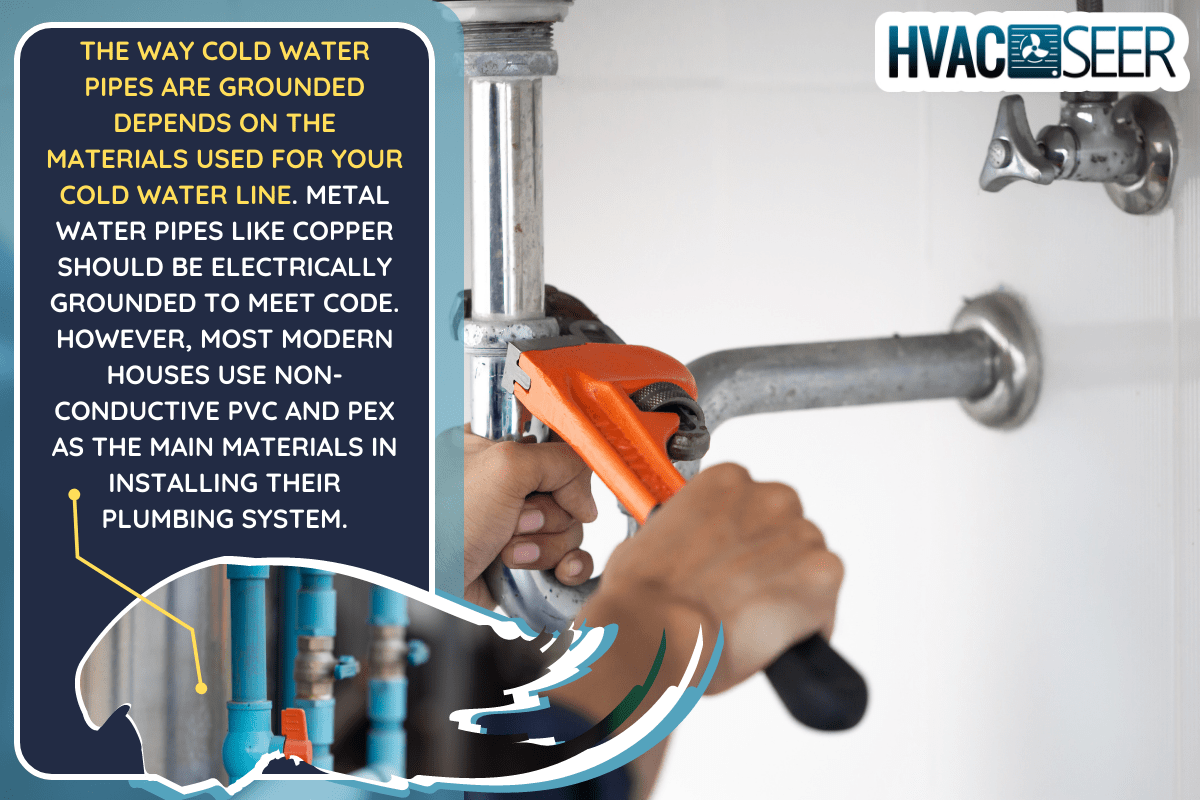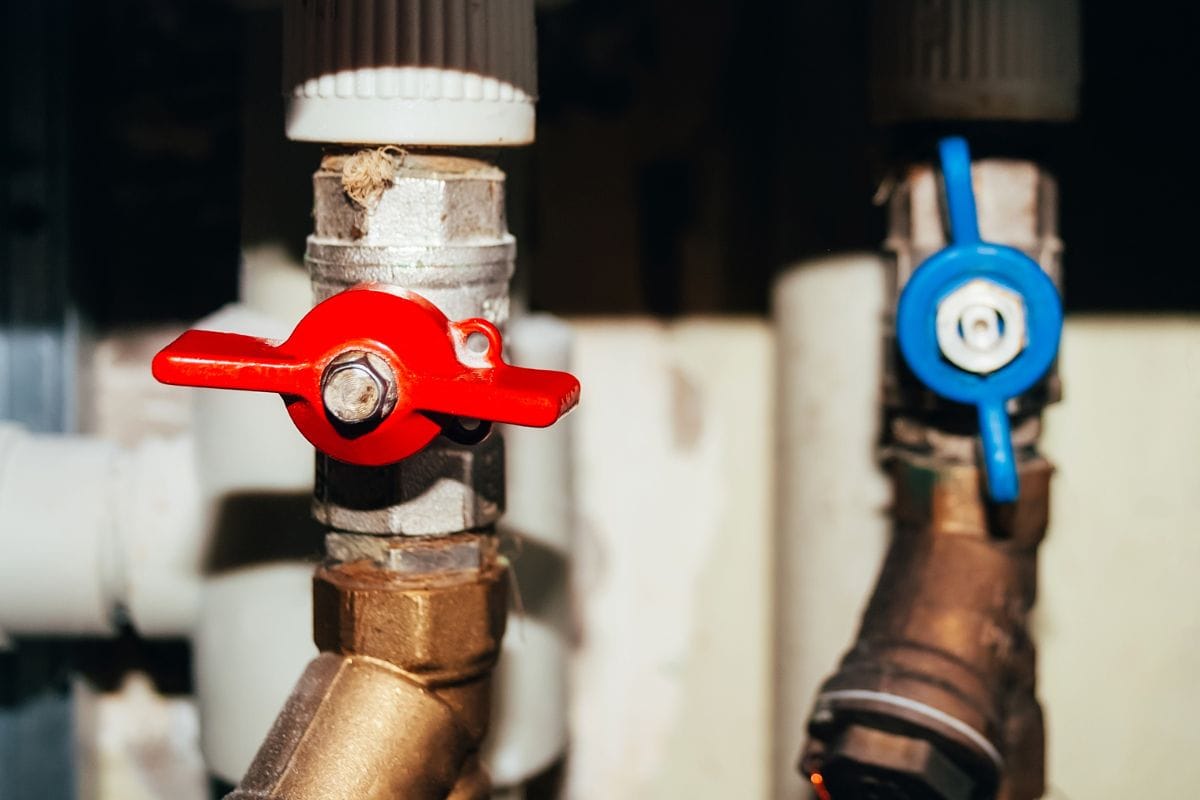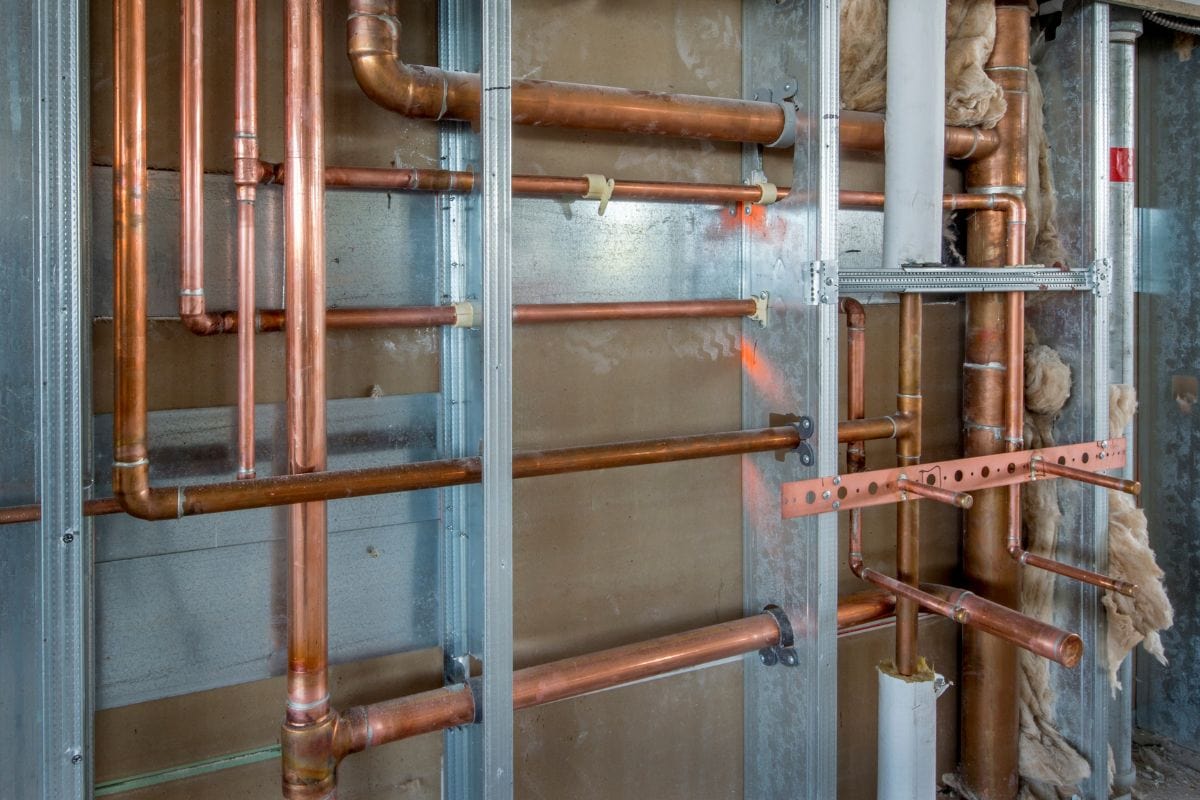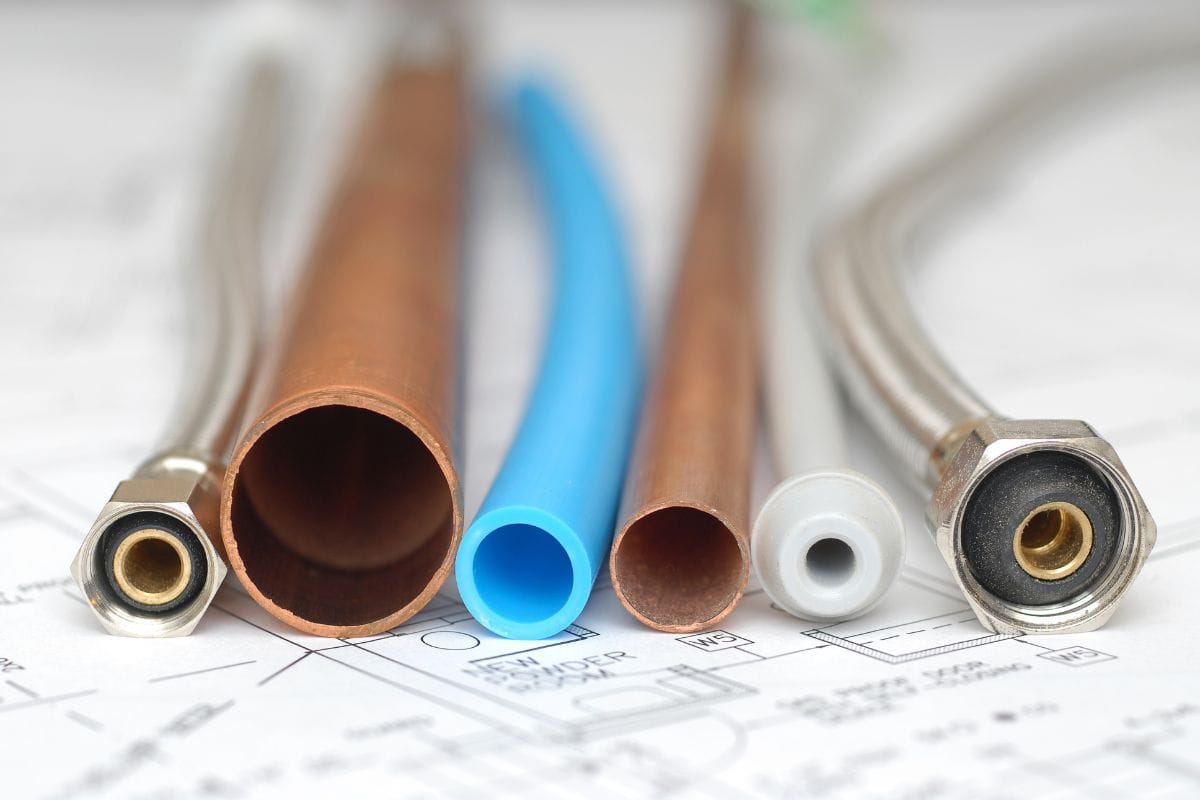Grounding helps protect you and your home from dangerous electrical currents. The same goes for your water system. It guarantees the safe usage of water in every area of the house. As for your cold water system, how do you know if your cold water pipes are grounded? Find out the answer and more here from the authorities and plumbing experts.
The way cold water pipes are grounded depends on the materials used for your cold water line. Metal water pipes like copper should be electrically grounded to meet code. However, most modern houses use non-conductive PVC and PEX as the main materials in installing their plumbing system.
Metal water pipes, as required, need to be grounded and not used as a lone grounding for your water pipe system. There are more conditions to qualify them as grounding electrodes. Continue reading the requirements and other details regarding your cold water piping.

Cold Water Pipes: Are They Grounded?
These days, you can find homes with a wide variety of materials used for their pipes. Some older homes may still have metal pipes that need to be grounded since they can conduct electricity. Many modern homes use non-conductive plastics that don't require any grounding.
Let's take a closer look at the most common types of pipes used.

Metal Water Pipes: Copper
Metal water pipes are often used as a part of the home's grounding system. Metal pipes themselves need to be electrically grounded by grounding the cold water inlet pipe in the pipe system.
The interior metal water pipe system that connects to a metal underground water pipe should be no more than 5 ft. from the point of entry to the building. It can serve as a grounding electrode.

However, the NEC requires adding one or more electrodes when using metal water pipes as an electrode. You need to bond the water pipes to the ground, even if the parts are outside the grounding system.
Urban water systems have been installed with plastic insulators to reduce current flow and corrosion due to electrolysis. While metal waterpipes have tar coatings and plastic fittings which makes the testing or measuring of electrical grounds vague.
Here are more conditions for grounding your metal pipes other than adding an electrode in your water pipe system:
- The underground metal water pipe needs 10 ft. of contact with the earth
- The pipe joints should be grounded without interruptions.
- Water gauges may not be needed for grounding.
- Use bonding conductors all over each insulating joint, pipe, and meter.
- The main plumbing connection should be located on the street side of the building
- The primary attachment to the plumbing should be within 5 ft. of the building's entrance
Plastic Water Pipes: PVC and PEX

PVC (polyvinyl chloride) and PEX (cross-linked polyethylene) are plastic materials used for cold water piping. They are reliable insulators. Thus, stand-alone, they won't carry electricity and do not need to be grounded. They use PVC often for only cold water. While PEX can carry hot and cold water.
However, you may still need to ground even plastic water pipes for the overall safety of the household. You may want to ground PVC pipes where there is a possible build-up of static electricity.
This can often happen in ventilation ducts where dust particles may rack up. It is to prevent explosions. To ground plastic water pipes, you need to add conductors.
Here's how to add a ground to your PVC pipes:
- Get a bare uninsulated copper wire and put it into the length of the suspected PVC pipe.
- Connect the copper wire to a grounded surface of the conductor system of the house. It may be a grounded metal pipe, a grounded junction box, or any grounded wire.
- Twist the bare copper wire tightly around the pipe to secure it.
Remember, adding grounds to your water pipes or working with any electrically loaded system requires competitive skill and knowledge. It is recommendable to use metal pipes in large installations such as factories and industrial buildings.
Metal Pipes VS. Plastic Pipes

Metal water pipes such as copper have been the standard material for water plumbing. Then came the water-plastic pipes such as PVC and PEX. Look at the advantages and disadvantages of these materials:
- Copper is more expensive than water-plastic pipes.
- Copper demands a longer time of installation than water-plastic pipes.
- Copper and PVC pipes can last around 50 years; PEX pipes can last more than 50 years.
- PVC and PEX are lighter materials than metal pipes.
- PVC and PEX come in different colors - white, red, blue, and purple; copper pipes have labels M, L, and K according to their thickness.
- PVC and PEX are insulators, while metal pipes are conductors.
Adhering To The Code And Authority

Home grounding is a crucial step in building houses and commercial buildings. You should follow the building codes set by NEC and other organizations such as the National Fire Protection Association (NFPA) as well as the United States Department of Housing and Urban Development (HUD).
Of course, your hired plumbing expert should know the codes in mastery. Some plumbers add more safety bonding and grounding even outside of the NEC requirement in installing the plumbing system to ensure safety in the house.
Why Is There A Ground Wire On My Water Pipe?
It is a safety measure to install a ground wire on your metal pipe to prevent ground electrodes from causing electric shocks. Call a professional plumber if you think the wire is not tightly attached to the pipes.
How Do I Know If My Pipes Are Grounded?
Test for the voltage of your water pipes. Connect a multimeter to the metal part and the end of the wire. You can also use an ohmmeter by draining your water system and running the test. The water may carry static electricity, so the test will not be reliable if there is water in the pipes.
How Do You Bond Hot And Cold Water Pipes?
Use a unique fitting or a bonding wire to bond hot and cold water pipes. Many plumbers install a bonding wire even though it's not a requirement from NEC. This heavy copper wire has brass clamps at one end that attach to the cold water pipe and at the other, connecting to the hot water pipe.
Click to view this Hillman copper wire on Amazon.
When Did They Stop Using Copper Pipes In Houses?
Copper pipes started to be obsolete in 199os. They are rarely acquired to use in piping systems since 2000. It was the "gold standard" for the quality of pipes in the 1970s.
However, plastic pipes such as PEX and PVS have become the trend in installing water pipe systems and construction. However, it is still recommendable to use copper pipes, especially in industrial buildings.
Should I Replace copper With PEX?
PEX pipes are energy-efficient, affordable, and of good quality. You can opt for PEX pipes because they are much cheaper than copper pipes. It is very reasonable to use it for home construction. It is also easier to install than copper pipes.
Does PEX Freeze And Burst?
When the temperature gets low, any pipe, including PEX pipes, can freeze and block your water line. However, PEX pipes are flexible and expandable. It expands when it freezes and contracts back to its shape when thawing. Thus, it is less likely to burst than other materials.
Which Pipes Are Most Likely To Freeze?
The pipes that are most prone to freezing are those outdoors. They freeze because there's no insulation. Take some precautionary measures before freezing weather kicks in and if your plumbing is failing, contact a plumbing expert.
Frozen pipes are mostly seen in the:
- outdoors
- basement
- attic
- garage
- kitchen cabinet
- exterior wall
To learn how to protect your pipes, check out these articles on pipe insulation:
What Is The Best Insulation For Pipes?
How Do You Tell If Your House Is Properly Grounded?
You can tell that your house is correctly grounded if you can't feel any electric shock whenever you touch a metal surface inside your home. Three-holed outlets most likely have grounds. Check all the outlets in your house.
Summing Up
Proper grounding of your cold water pipes depends a lot on the materials used. Water-plastic pipes such as PEX and PVC can be used without being grounded. Metal pipes such as copper, which these days are mostly used in industrial buildings, need to be grounded.
Read more about cold water pipes in these posts:

